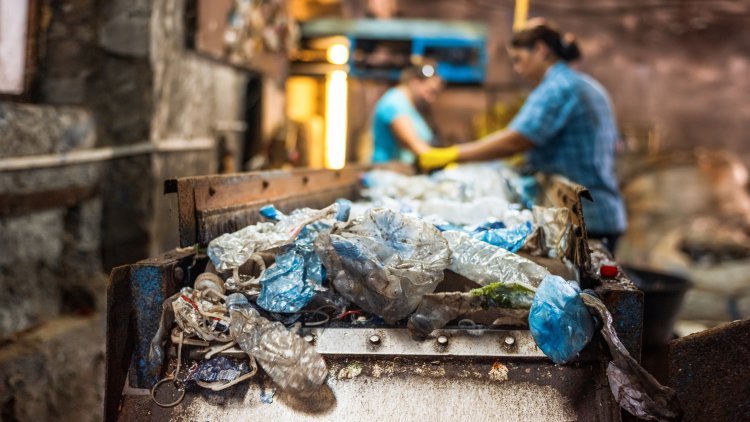10 Essential Tips for Biomedical Waste Management

Biomedical waste management plays a crucial role in maintaining the safety and well-being of communities and ecosystems. When biomedical waste is mishandled or improperly disposed of, it can lead to severe consequences for public health and environmental integrity.
Therefore, healthcare facilities, laboratories, and research institutions must adopt and implement robust waste management protocols. These practices not only mitigate the immediate risks associated with hazardous materials but also contribute to the overall sustainability and resilience of our healthcare systems and environments.
Let’s explore the essential tips for biomedical waste management.
Fundamental Rules for Biomedical Waste Management
1. Segregation of Waste
Proper segregation of biomedical waste is the cornerstone of an effective waste management system. Waste should be categorized into different types such as infectious, sharps, pathological, pharmaceutical, and non-hazardous. Segregation at the point of generation ensures that each type of waste is treated and disposed of appropriately, minimizing risks.
2. Proper Storage Methods
Once segregated, biomedical waste should be stored in designated containers that are leak-proof, puncture-resistant, and labeled correctly. Different types of waste should be stored separately to prevent cross-contamination. Secure storage areas should be in place to prevent unauthorized access and ensure the safety of personnel.
3. Safe Handling Practices
Training healthcare workers and staff in safe handling practices is crucial to prevent accidents and exposure to hazardous waste. Proper use of personal protective equipment (PPE), such as gloves, masks, and gowns, is essential when handling biomedical waste. Training programs should also emphasize the importance of hand hygiene and proper disposal techniques.
4. Use of Appropriate Containers
Using the right containers for biomedical waste disposal is vital to prevent injuries and contamination. Sharps containers should be puncture-proof and equipped with lids to prevent accidental needle sticks. Additionally, containers for infectious waste should be sturdy and sealed to contain any potential spills or leaks.
5. Training and Awareness Programs
Regular training and awareness programs should be conducted for all healthcare personnel involved in waste management. These programs should cover topics such as waste segregation, handling, and disposal procedures. Staff should be updated on the latest regulations and guidelines to ensure compliance.
6. Implementation of Standard Operating Procedures (SOPs)
Establishing standard operating procedures (SOPs) for biomedical waste management ensures consistency and efficiency in waste handling practices. SOPs should outline step-by-step procedures for waste segregation, storage, transportation, and disposal. Therefore, regular reviews and updates to SOPs are essential to adapt to changing regulations and best practices.
7. Regular Monitoring and Auditing
Routine monitoring and auditing of biomedical waste management practices help identify areas for improvement and ensure compliance with regulations. Monitoring includes inspections of storage areas, waste segregation practices, and staff compliance with SOPs. Audits assess the effectiveness of waste management systems and identify any non-conformities that need to be addressed.
8. Disposal Methods
Proper disposal of biomedical waste is essential to prevent environmental contamination and public health risks. Treatment methods such as autoclaving, incineration, and chemical disinfection should be employed based on the type of waste and regulatory requirements. So, disposal should comply with local, state, and federal regulations to minimize environmental impact.
9. Environmental Impact Considerations
Biomedical waste management should take into account the environmental impact of waste disposal methods. Sustainable practices such as recycling, waste-to-energy conversion, and composting should be explored where feasible. Also, minimizing the use of disposable items and implementing waste reduction strategies can also help mitigate environmental concerns.
10. Documentation and Record Keeping
Accurate documentation and record-keeping are essential components of effective waste management systems. Records should include waste generation rates, disposal methods, and compliance with regulations. Documentation helps track waste streams, identify trends, and demonstrate compliance during inspections and audits.
The Significance of Proper Biomedical Waste Disposal
Biomedical waste, generated from healthcare facilities, laboratories, and research institutions, poses significant risks to public health and the environment if not handled and disposed of correctly. So, here are some key points highlighting the importance of ensuring the right disposal of biomedical waste:
1. Public Health Protection
Improper disposal of biomedical waste can lead to the spread of infectious diseases and pathogens. By ensuring proper disposal methods, we can safeguard the health of healthcare workers, patients, and the general public.
2. Environmental Preservation
Biomedical waste contains hazardous chemicals and materials that can contaminate soil, water, and air if not disposed of properly. The right disposal methods help prevent pollution and preserve the integrity of our ecosystems.
3. Prevention of Accidents and Injuries
Sharp objects like needles and scalpels, often found in biomedical waste, can cause injuries if not handled carefully. Proper disposal minimizes the risk of accidental needle sticks and other injuries among healthcare workers and waste handlers.
4. Compliance with Regulations
Regulatory bodies impose strict guidelines and regulations for the disposal of biomedical waste to protect public health and the environment. Adhering to these regulations ensures legal compliance and avoids penalties or fines.
5. Mitigation of Legal and Financial Risks
Improper disposal of biomedical waste can result in legal liabilities and financial consequences for healthcare facilities and institutions. Implementing the right disposal practices mitigates these risks and protects the reputation of the organization.
Ensuring the proper disposal of biomedical waste is not just a legal obligation but a moral responsibility to protect public health and the environment for current and future generations.
To Sum Up
Proper biomedical waste disposal and management are essential to protect public health, safeguard the environment, and ensure compliance with regulations. By implementing the essential tips, healthcare facilities can minimize risks associated with biomedical waste and contribute to a safer and healthier environment for all.
What's Your Reaction?











![Wireless Connectivity Software Market Size, Share | Statistics [2032]](https://handyclassified.com/uploads/images/202404/image_100x75_661f3be896033.jpg)



